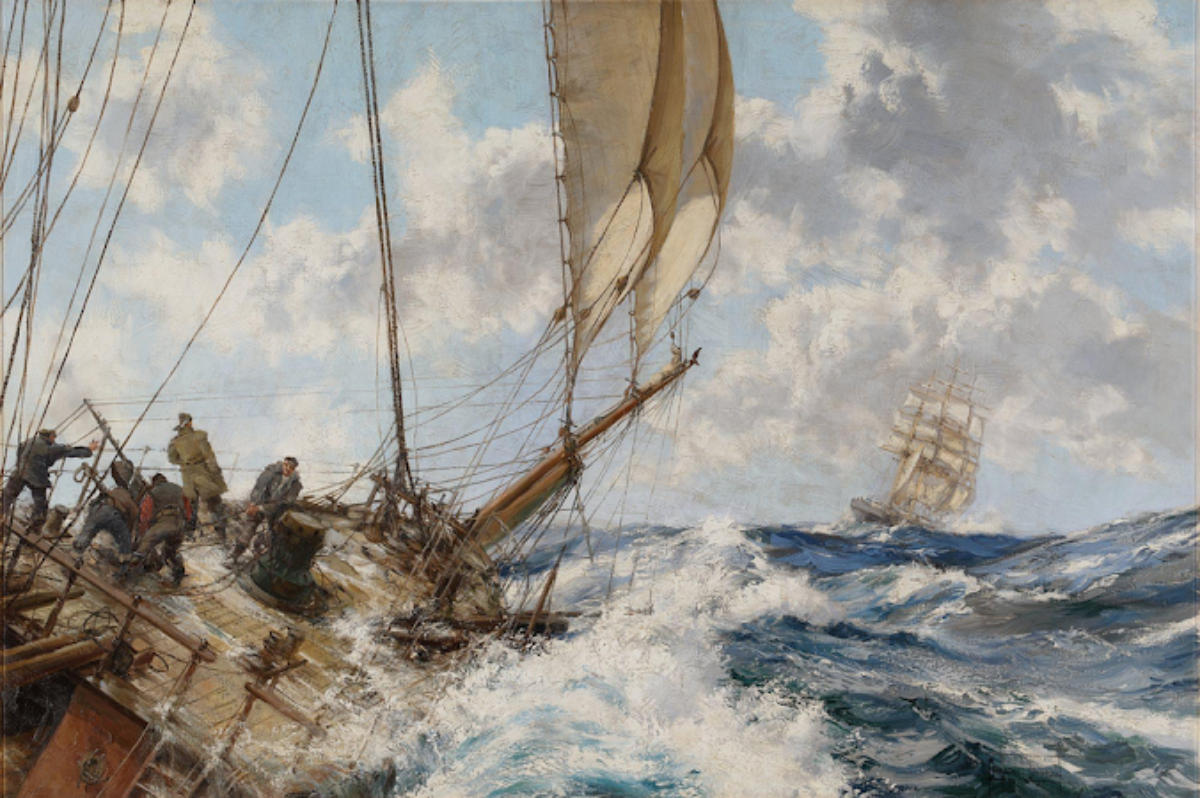With the drawing of this Love and the voice of this Calling
We shall not cease from exploration
And the end of all our exploring
Will be to arrive where we started
And know the place for the first time.
Through the unknown, unremembered gate
When the last of earth left to discover
Is that which was the beginning;
At the source of the longest river
The voice of the hidden waterfall
And the children in the apple-tree
Not known, because not looked for
But heard, half-heard, in the stillness
Between two waves of the sea.
Quick now, here, now, always
A condition of complete simplicity
(Costing not less than everything)
And all shall be well and
All manner of thing shall be well
When the tongues of flame are in-folded
Into the crowned knot of fire
And the fire and the rose are one.
Four Quartets 4: Little Gidding
T.S. Eliot (exerpt)
This is akin to the idea that one can, as has been noted by a forbearer, “gaze steadfastly at stars which though distant are yet present to the mind.”
I’ve been thinking about knowledge, understanding, and how man uses these to make his way through life. One can know something without understanding it yet many conflate knowledge and understanding. Science takes measure of the material world and then concludes the measurement is understanding, for instance. Knowledge and understanding are subtly different. As for particular realities understanding and knowledge do conflate rather nicely. But there are boundaries to this conflation. If you want to know all the information in the universe you find that you can know an awful lot but the nearer you get to your grand unifying theory the greater the task of reaching that conclusion. It is at this event horizon, the boundary of particular knowledge, that mere “understanding” cannot reach beyond. Without the suspension of what has become an encumbrance, knowledge of phenomena, the transition of the particular into the universal is arrested and though the thought processes that went into the edifice of knowledge were exquisitely constructed that final leap to full comprehension escapes the precision of the exercise.
There are several other ideas that impinge on this consideration. Consciousness itself and its relationship to mind and in turn to understanding and knowledge. No doubt these all work in a simbiotic stream of dialectic. Knowledge must be first because it is the mouth of the dialectic, so to speak, that consumes the output of the senses which in turn consume the input of their collision with the phenomenal reality in which people find themselves. In this processing of data, of taking measure, the mind partners with knowledge and is the faculty that connects this with that to conclude the other. I see such and such, then so and so, and conclude something other. If A happens, then B, I have learned that if A then B. Understanding is the faculty of mind that makes the leap beyond a mere set of particular knowledge to arrive at something new in a synthesis of the precursors.
Mind is the field on which as a result of perception knowledge comes and goes and it is mind that gives rise to understanding of the relationships among things, the implications. That is understanding with a small “u” because it is restricted to phenomena.
Consciousness is a much more subtle constituent. It cannot be defined, and indeed, science largely ignores its presence and treats it as a mere given. It is easy to use a throw away idea that it is merely analogous to light. It does illuminate the activities of the mind, perception, knowledge, understanding. But this begs so many questions. Is it a function of life? Is my consciousness the same as yours? That is to say, we might all sit and watch a sunset. The light of the sun is something that we all participate in to share the experience. Is consciousness also something we all participate in and is it as omnipresent as light itself in the universe? Would animals, plants, so called inert matter, not to speak of planetary systems, suns, and galaxies participate in some fashion in the same consciousness which a human being makes use of to contemplate the stars?
There is a word, numinous, Latin for surpassing comprehension, or understanding. It points to the realm of the mysterious, for instance in art, there always remains an element that escapes the precision to define what it is exactly that is the beauty of a particular work. That final breach of knowledge in the universal set of all things leaves one in bewilderment, in awe; understanding with a small “u” must be abandoned, given up on, at which juncture a new, in fact an ever new, field comes into view, not in the phenomenal sense, but in a spiritual sense. Then Understanding with a capital “U” is brought forth to invade the profane with a sacred glimpse of the divine.
Plato thought that beauty, for instance, was a window through which one could have a glimpse of the transcendent. His thought that one could see right through beauty to the Real itself thoroughly encapsulates his thought. Thus, Beauty acts as an attractant – the sweetness of a rose, its color, texture, even its evanescence – are inviting portals indeed to the unlimited vastness that lies “just beyond”. The phenomenon is not so much real in itself as giving its existence as a means of transport to that being from which it emerged.
